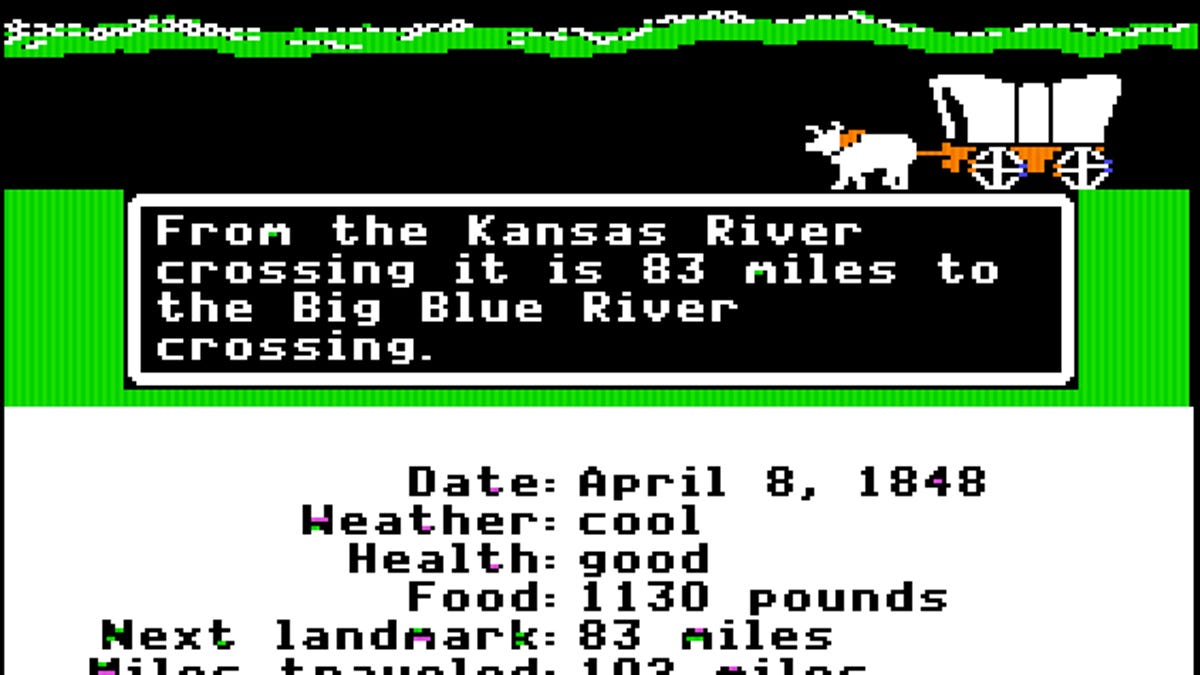Apple iBooks in schools: Devil is in the hardware
CNET Reviews Editor in Chief Lindsey Turrentine knows schools, and she's sad to say that outfitting public classrooms with sophisticated hardware will cause more problems than schools are ready to face.

There was an Apple II in my third-grade classroom. We used it to play Oregon Trail. Then it died.
Therein lies the problem with iPads in high school: devices break. When Apple announced digital textbooks for primary schools via iBooks 2 this morning, the first thing I thought was: Oh, God, what about the hardware? I've done hard, rewarding time in public schools. Both my parents were high-school teachers and I've chaired the PTA at my children's public grade school and can say with certainty that the best software in the world won't make it practical to deploy fleets of Apple products (or any single piece of hardware) in public schools in the near future. I wish that weren't true.
The first barrier is cost, and it's an obvious one. Public schools in California, where I live, face such gigantic budget cuts that even if books cost only $15 apiece, it's more likely that any given school will choose to stick with a 10-year-old textbook than buy an entirely new library. Families in my district, which is lucky enough to benefit from local taxes keeping class size down, still find themselves footing the bill for copy paper and markers in classrooms. Our fundraisers aim to keep the art teacher employed. Fancy technology is laughably remote to us.
But let's say, for the sake of argument, that a midsize high school of 700 students pursued a grant to outfit the school with iPads. For schools, grants are easier to come by for one-time investments than for day-to-day maintenance, so a savvy school theoretically could coax a foundation into writing a check to iPad-up the entire institution. (If Apple is smart, it will use some sort of Oprah moment at its rumored February iPad event to seed the market with free, lighter-weight iPad models for a number of schools.)
At current iPad prices, that grant would have to start at $350,000, and that's just for the hardware. The acquisition of a new fleet of high-school biology textbooks alone, at Apple's quoted $15 prices, would cost an additional $10,500. To outfit the entire school with every book would cost hundreds of thousands more. $500,000 grants exist, sure, but it takes a Herculean effort from a team of (usually volunteer) grant writers to secure them.
What is the life span of any piece of hardware used heavily by children? I'm going to throw out a number--let's say three years (which I actually think is optimistic given how easy it is to break an iPad screen). What happens when new technology supplants the current crop of iPads? Does the district employ a computer maintenance technician to fix broken-down iPads? We just lost the school nurse at our school, so I'm guessing no.
I predict that technology will simply grow old, and the school will struggle with crashing tablets or dying battery life until it abandons the fleet of iPads altogether and goes back to its more out-of-date textbooks. I've seen it happen before. The public school that my kids go to changed its name a decade ago after receiving a giant, technology-based grant to become a "communications magnet" focused on the technology of media. The principal later told me that the effort it took to maintain the granted PCs and their network was unsustainable and that, ultimately, the project distracted the school from its core mission: teaching children.
My father-in-law volunteers his time in a California school maintaining its computers. The school relies on donations to keep the fleet filled out, and while most of the computers run Windows XP Pro (not that ancient), the machines are mostly 3-or-4-year-old Pentium 4-based rigs, and there's no prospect of replacing them with dual-core chips anytime soon.
I wish I weren't so skeptical. I would love to see my kids go to a high school outfitted with technology that helps them learn from the most current versions of any book. Perhaps a private school would have the funding to make iPad textbooks a reality. But I believe in public schools, and public schools need more teachers, more basics. It will be an uphill battle to outfit them all with tablets.
Related video

